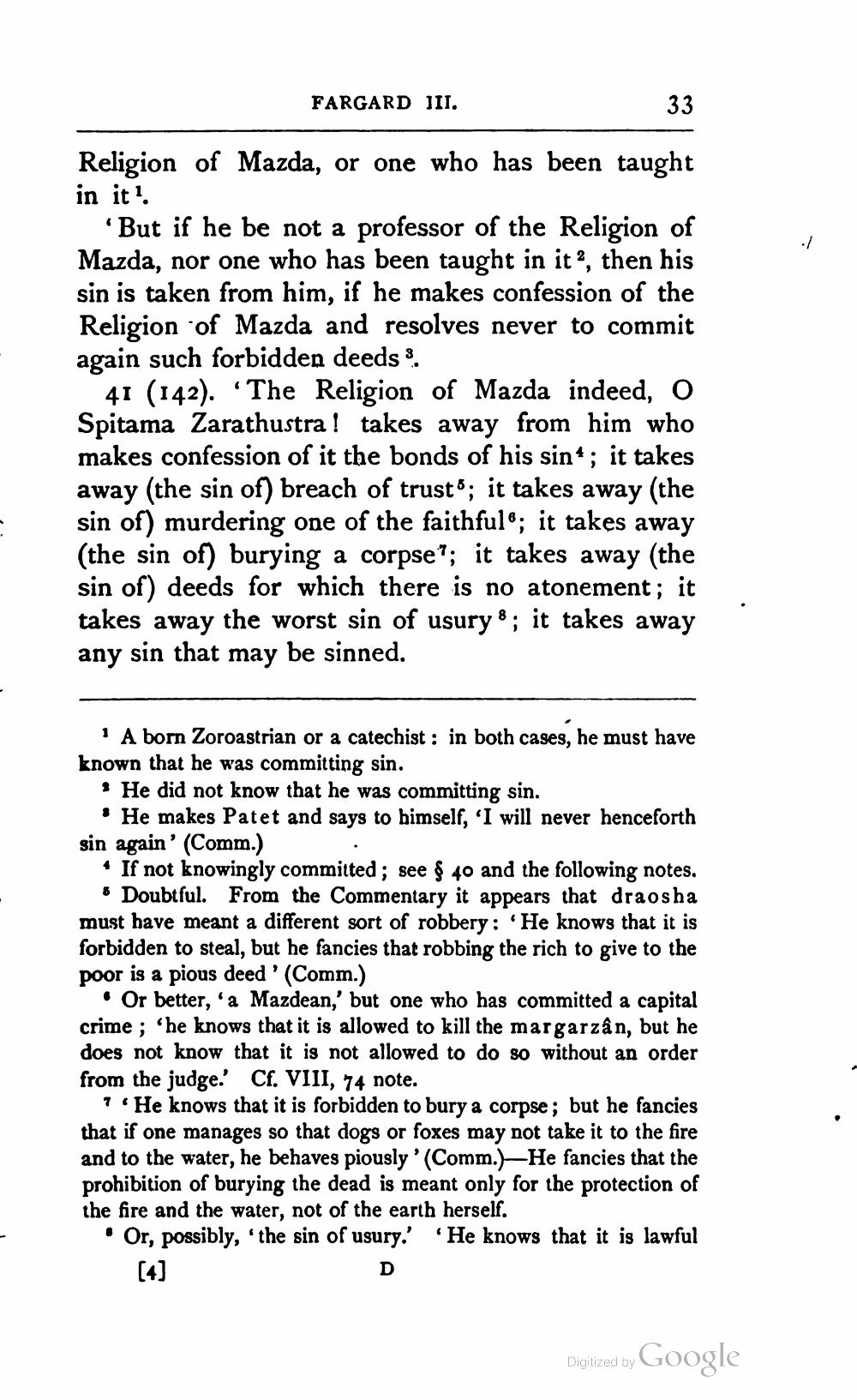________________
FARGARD JII.
33
Religion of Mazda, or one who has been taught in it ?
But if he be not a professor of the Religion of Mazda, nor one who has been taught in it, then his sin is taken from him, if he makes confession of the Religion of Mazda and resolves never to commit again such forbidden deeds!.
41 (142). «The Religion of Mazda indeed, O Spitama Zarathustra ! takes away from him who makes confession of it the bonds of his sin*; it takes away (the sin of) breach of trust); it takes away (the sin of) murdering one of the faithfule; it takes away (the sin of) burying a corpse?; it takes away (the sin of) deeds for which there is no atonement; it takes away the worst sin of usury 8; it takes away any sin that may be sinned.
" A born Zoroastrian or a catechist : in both cases, he must have known that he was committing sin.
* He did not know that he was committing sin.
• He makes Patet and says to himself, 'I will never henceforth sin again' (Comm.)
* If not knowingly committed ; see § 40 and the following notes.
6 Doubtful. From the Commentary it appears that draosha must have meant a different sort of robbery: 'He knows that it is forbidden to steal, but he fancies that robbing the rich to give to the poor is a pious deed' (Comm.)
• Or better, 'a Mazdean,' but one who has committed a capital crime ; "he knows that it is allowed to kill the margarzân, but he does not know that it is not allowed to do so without an order from the judge. Cf. VIII, 74 note.
? 'He knows that it is forbidden to bury a corpse; but he fancies that if one manages so that dogs or foxes may not take it to the fire and to the water, he behaves piously '(Comm.) He fancies that the prohibition of burying the dead is meant only for the protection of the fire and the water, not of the earth herself.
• Or, possibly, the sin of usury.' 'He knows that it is lawful
Digitized by Google




